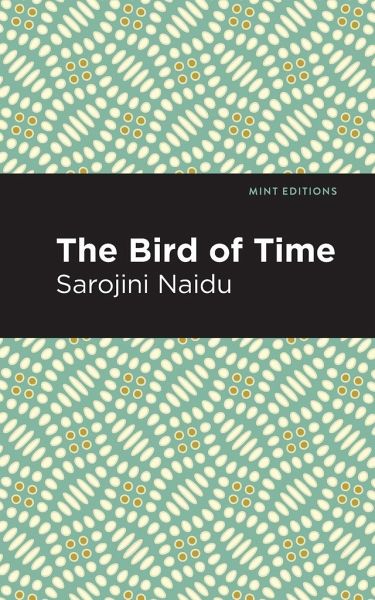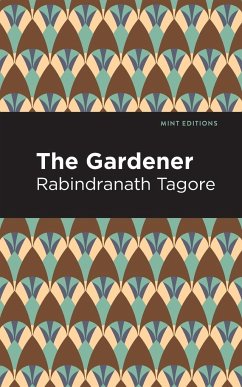
The Bird of Time
Songs of Life, Death & the Spring
Versandkostenfrei!
Versandfertig in 1-2 Wochen
7,99 €
inkl. MwSt.
Weitere Ausgaben:

PAYBACK Punkte
4 °P sammeln!
The Bird of Time (1912) is a poetry collection by Sarojini Naidu. Naidu's second book of English verse is steeped in the Romantic tradition while entirely conscious of the present political strife of her native India. From songs of love to portraits of urban life, Naidu's poems reflect her commitment to feeling, both for herself and for others. Traditional and modern, The Bird of Time is a powerful collection from a young poet on the brink of an impassioned life in politics. "O Bird of Time on your fruitful bough / What are the songs you sing? . . . / Songs of the glory and gladness of life, /...
The Bird of Time (1912) is a poetry collection by Sarojini Naidu. Naidu's second book of English verse is steeped in the Romantic tradition while entirely conscious of the present political strife of her native India. From songs of love to portraits of urban life, Naidu's poems reflect her commitment to feeling, both for herself and for others. Traditional and modern, The Bird of Time is a powerful collection from a young poet on the brink of an impassioned life in politics. "O Bird of Time on your fruitful bough / What are the songs you sing? . . . / Songs of the glory and gladness of life, / Of poignant sorrow and passionate strife, / And the lilting joy of the spring..." In this mysterious ode, Naidu addresses the themes of her own multitudinous poems-life, love, grief, and nature, among countless others. Is the Bird of Time her muse, or a symbol for poetry itself? How can a poem express "the pride of a soul that has conquered fate?" As in much of Naidu's poetry, the symbolic maintains its distance in order to reflect a deeper, perhaps even personal truth. To describe the poem, to assign it meaning, would ultimately negate the need for poetry itself, whose powers must remain at least partially veiled. Elsewhere in the collection, "In the Bazaars of Hyderabad" reflects her commitment to the struggle for Indian independence as it celebrates the homegrown produce and handmade wares of a proud and lively people. Moving along the street, she sings to vendors, goldsmiths, and musicians alike, concluding before a group of flower-girls, whose work serves weddings and funerals. Beneath this vibrant imagery is a call to action for the Swadeshi movement, a boycott of foreign goods designed to strike a blow against British commerce. This edition of Sarojini Naidu's The Bird of Time is a classic work of Indian literature reimagined for modern readers. Since our inception in 2020, Mint Editions has kept sustainability and innovation at the forefront of our mission. Each and every Mint Edition title gets a fresh, professionally typeset manuscript and a dazzling new cover, all while maintaining the integrity of the original book. With thousands of titles in our collection, we aim to spotlight diverse public domain works to help them find modern audiences. Mint Editions celebrates a breadth of literary works, curated from both canonical and overlooked classics from writers around the globe.












